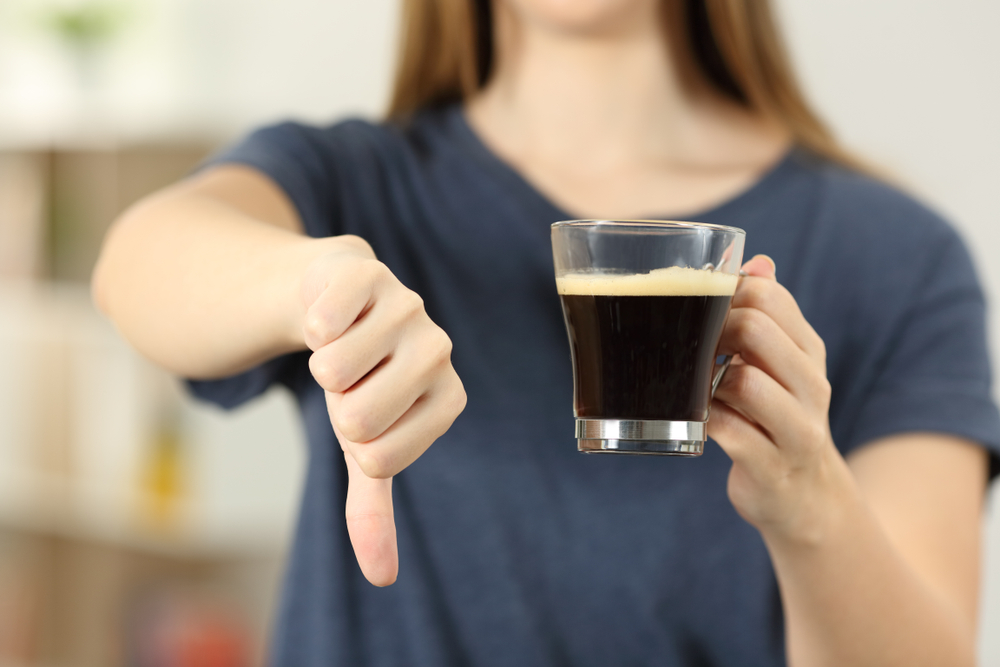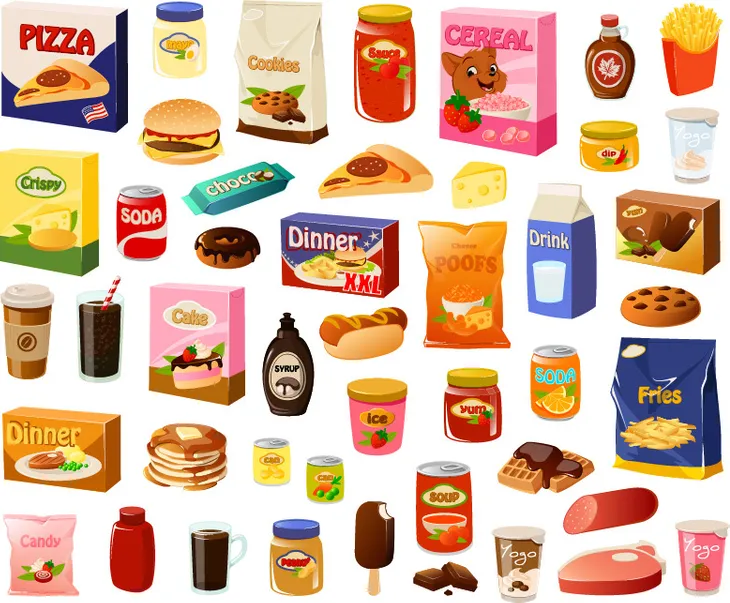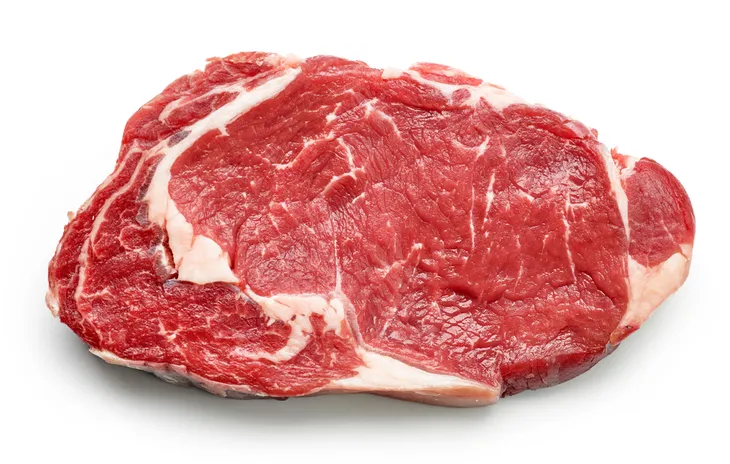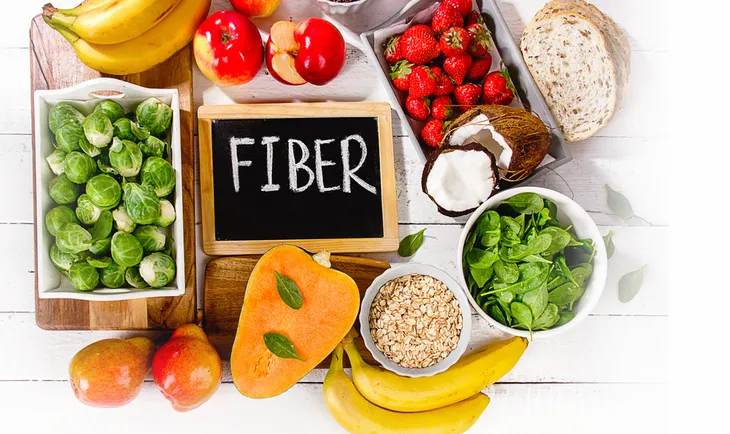As the name suggests, irritable bowel syndrome, or IBS, is definitely a point of irritation for those affected by it. The condition itself is an umbrella issue within which can be found many smaller and more recognizable problems, from heartburn and upset stomach to cramps, diarrhea, and constipation. People with IBS typically struggle with at least one of these problems on a regular basis, to the point where it can make carrying out even the most basic of daily activities rather difficult and exhausting.
That’s why it’s so important for people with irritable bowel syndrome to learn about the causes and triggers of IBS. Put simply, if you understand what behaviors are likely to result in problems like heartburn and diarrhea, you can take effective steps towards preventing these outcomes. On that note, let’s take a look at some popular causes of IBS symptoms…
Eating Highly Processed Foods
Although this rule may not apply to all individuals with irritable bowel syndrome, frequently eating highly processed foods can often lead to digestive problems like upset stomach and constipation. Examples of these foods include processed meat like sausage or hot dogs; processed baked goods, like muffins and cookies; and processed salty snacks, like potato chips.
The problem is that many processed foods contain chemicals designed to enhance the product’s flavor and allow it to remain on the shelf for a longer period of time. These chemicals are not always easy to digest and can cause issues like cramps, gas, diarrhea, and constipation. If you’re experiencing problems of this kind, take a close look at the processed foods that are currently a part of your regular diet and consider cutting them out in favor of fruits, vegetables, and whole grains.
Drinking a Lot of Coffee
There’s no drink more popular than coffee, which is available in a wide variety of formats: from “Americano” to the latte, cappuccino, and more. There’s even a long list of popular foods that emulate the coffee flavor. The drink’s popularity can be attributed to both its popular flavor and the fact that it’s high in caffeine, a drug that can provide a temporary energy boost.
In short, this world is absolutely obsessed with coffee. But that can be a problem for individuals with irritable bowel syndrome. That’s because coffee, and particularly the caffeine within it, can cause an almost immediate reaction in the intestines, in some cases resulting in diarrhea, constipation, or feeling bloated. If coffee causes these issues for you, consider finding other ways to generate energy, like getting more physical exercise or drinking more water.
Drinking Carbonated Beverages
Carbonated beverages are some of the most popular drinks out there. Think about it: you could actually go your entire day drinking only these types of beverages. You start your day with some sparkling water, enjoy a couple sodas while at work, and then kick back with a beer when you get home. For many people, that probably sounds pretty natural.
But carbonated beverages can present a lot of problems for people with irritable bowel syndrome. That’s because, by its very nature, a carbonated beverage is full of gas. If you drink one carbonated beverage a day, you probably won’t experience any problems. But if you drink a few, there’s a good chance the gas in your drink will transfer to your digestive system, leaving you feeling bloated and, possibly, constipated. If these issues bother you regularly, consider cutting back on carbonated drinks like sparkling water, soda, and beer.
Drinking Diet Soda
Elsewhere on this list we’ve discussed the problems that can arise for people with irritable bowel syndrome when they drink a lot of carbonated beverages. Diet soda would fall under that umbrella, but it can be especially problematic because it often contains artificial sweeteners like aspartame and sorbitol that, on their own, can cause significant digestive problems, including gas and cramps.
If you’re often struggling with these kinds of symptoms, it may be time to carefully review your drinking choices and cut back on your consumption of diet sodas. If that seems a little extreme, you may want to talk to your doctor about experimenting with different artificial sweeteners, as it’s possible one may bother your digestive system less than another.
Too Much Protein
Men and women hoping to build muscle mass without adding to their waistline will often follow a high-protein diet. This may mean eating a lot of meat products, from grilled chicken and beef to eggs and yogurt. As part of a balanced diet, eating a lot of protein isn’t usually a problem. But it can become an issue if you’re only eating protein and not fruits, vegetables, and whole grains — in other words, foods that contain fiber.
For people with irritable bowel syndrome, it’s paramount that fiber is regularly consumed, as it plays a central role in keeping the digestive system functioning as it should. Without sufficient fiber, a diet that’s high in protein will likely cause indigestion and constipation, issues that can make one feel tired and bloated. So, if you’ve recently increased your protein intake, be sure to balance it out with lots of high-fiber foods.
Excessive Dairy Consumption
Dairy staples like cheese, milk, and yogurt have been a big part of the North American diet for not just generations, but centuries. Today, dairy foods account for a huge part of the average person’s daily diet. But that can be a significant problem for individuals with irritable bowel syndrome.
Why? Because dairy products tend to be higher in fat, which has been linked with increased risk of diarrhea. Individuals with lactose allergies may have bigger problems, like upset stomach and even vomiting, until they move towards lactose-free varieties of their favorite dairy foods. The good news is that the lactose-free food market is growing and today there are many choices for dairy fans whose digestive systems struggle with lactose.
Not Enough Fiber
Not getting enough fiber in your diet is a problem for anyone, no matter their digestive situation, but it’s an especially concerning issue for individuals with irritable bowel syndrome. That’s because insufficient fiber can lead to major digestive problems like diarrhea and constipation, issues that are typically more prevalent among people with IBS.
That’s why it’s crucial for women to get at least 25-grams of fiber each day, men 38-grams of fiber each day. The best sources of fiber are fruits, vegetables, and natural whole-grain foods like breads and cereals. The good news is that anything packaged should show you its fiber content in the attached nutritional label.
Not Staying Hydrated
One of the easiest ways to avoid a lot of digestive problems associated with irritable bowel syndrome — especially constipation — is to make sure you’re drinking enough water each day. Failing to do so will likely cause an individual with IBS to feel bloated and gassy and may also lead to feelings of exhaustion.
So, how much water should you drink each day? The answer will vary depending on your size, gender, and the amount of physical activity you get each day. Generally speaking, if you often feel tired, bloated, or constipated, it’s worth trying to consume more water. You may also consider replacing other drinks that may dehydrate you, like alcohol and coffee, with a glass of water.
Overdoing It With Fiber
We’re often told that we need to consume more fiber and today, there’s no shortage of food manufacturers making products that specifically highlight their high fiber content. In truth, it is important that women get about 25-grams of fiber each day, with men needing about 38 grams of fiber on a daily basis. But if you have irritable bowel syndrome, you’ll want to be careful in how you handle increasing your fiber intake.
In essence, there is truth to the saying “too much of a good thing.” For individuals with IBS, the problem is often in transitioning from a diet that may not have quite enough fiber to one that has more than enough. Increasing your fiber intake in a dramatic way is likely to produce some serious digestive issues that may not dissipate until your body becomes used to it. To avoid these problems, increase your fiber intake modestly — such as by 2-grams a day.
Too Much Alcohol
There’s nothing wrong with having an alcoholic drink as you wind down after a long day at work. But it’s important to remember that alcohol can present significant digestive problems for people with irritable bowel syndrome.
How so? Because alcohol, like caffeine, tends to dehydrate the body, making it more difficult for us to move food through the digestive system. This is only worsened if you drink alcohol to excess on a regular basis, as it can mean that your body is regularly struggling to carry out basic functions. For any individual this will almost certainly result in cramps and constipation, but for people with IBS the problems will be more pronounced and possibly more likely to cause disruptions in your daily routine.
Too Many Fried Foods
Deep-fried foods are some of our favorites in North America, with treats like french fries, onion rings, fried chicken, and battered fish being among the most popular dishes. But that presents big problems for more than just our waistlines: it can also mean serious digestive issues for individuals with irritable bowel syndrome.
That’s because deep-fried and fatty foods have been closely linked with digestive issues, like heartburn, upset stomach, diarrhea, cramping, and constipation. Rarely do these foods contain nutrients that can help with the digestive process, like folate and fiber. Instead, the oils, fats, and protein found in these foods often make it harder for the digestive system to move food along. If you’ve been diagnosed with IBS and find yourself struggling to digest your food properly, consider cutting back on your fried food favorites.
Too Much Stress
Stress and anxiety can cause a variety of mental and physical health problems. Struggling with a stressful job or personal life can make it difficult to get through the day, particularly if you have irritable bowel syndrome. That’s because stress and anxiety have been shown to directly impact how the digestive system operates, with particularly stressed and anxious individuals complaining of problems with upset stomach, cramping, diarrhea, and constipation. For many people, stress can also cause them to either eat more, or less. Oftentimes when someone is overeating it’s with unhealthy, fatty foods which can irritable the digestive system even more.
There are many ways to manage stress, from being more physically active to spending more time doing things that you’ve identified capable of helping you beat stress. For example, you may want to spend more time reading, playing video games, or chatting with friends and family. The key is to reflect regularly on your stress and anxiety levels and to focus on building strategies for managing them effectively.















